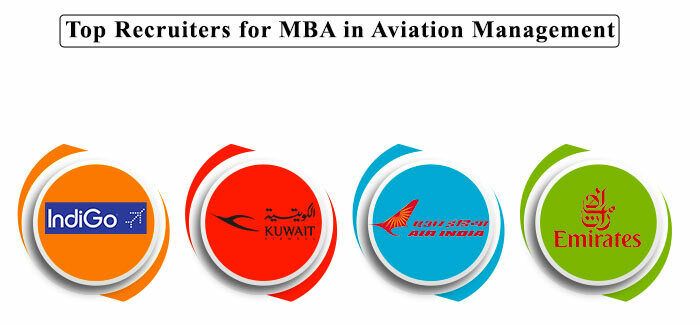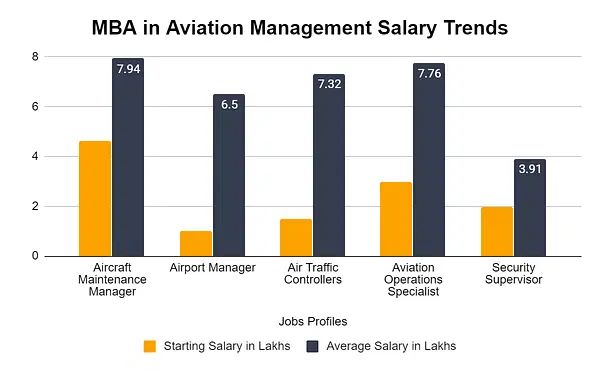[ez-toc]
MBA in Aviation Management Distance Education
MBA in Aviation Management through distance education offers individuals the opportunity to acquire specialized knowledge and skills in managing aviation-related businesses and organizations while providing the flexibility to study at their own pace. This program is designed to meet the needs of working professionals in the aviation industry who wish to enhance their managerial capabilities without disrupting their current work commitments.
The curriculum of an MBA in Aviation Management distance education program typically covers a wide range of subjects related to aviation, including aviation operations, airport management, airline management, aviation law and regulations, aviation safety and security, air transportation economics, and strategic management. Students gain a comprehensive understanding of the aviation industry, its challenges, and the best practices for effective management.
Distance education in this field typically utilizes online platforms, virtual classrooms, and study materials to deliver the course content. Students have the flexibility to access lectures and course materials at their convenience, allowing them to balance their professional and personal commitments. They can interact with faculty and fellow students through online forums and discussion boards, facilitating collaborative learning and networking opportunities.
Completing an MBA in Aviation Management through distance education equips individuals with the necessary skills to pursue careers in various sectors of the aviation industry, including airlines, airports, aviation consulting firms, aviation regulatory bodies, and aviation technology companies. The program provides a solid foundation in business management principles combined with specialized knowledge of the aviation sector, making graduates well-equipped for leadership roles in this dynamic industry.
MBA in Aviation Management Distance Education Course Highlight
Some of the key highlights are listed below:
| Degree Level |
Post Graduation |
| Full-Form |
Master of Business Administration in Aviation Management |
| Admission Process |
Merit-Based/ Entrance Examination |
| Study Mode |
Distance/ Online |
| Course Duration |
2 years |
| Age Limit |
No specific age limit |
| Eligibility |
Graduation from a recognized university with 45 to 50% marks |
| Average Course Fees |
INR 22500 to 50,000 |
| Average Salary Offered |
INR 3.5 to 5.5 LPA |
| Job Profiles |
Aircraft maintenance manager, grooming and aviation trainer, aviation ground staff trainer |
Why Should You Study MBA in Aviation Management Distance Education?

- Flexibility: Distance education provides flexibility in terms of scheduling and location. You can study from anywhere and at any time that suits your personal and professional commitments. This flexibility allows you to balance your studies with work or other responsibilities.
- Career Advancement: An MBA in Aviation Management equips you with the knowledge and skills necessary to excel in managerial and leadership roles within the aviation industry. This degree can enhance your career prospects by opening up opportunities for advancement and higher-level positions.
- Industry-Relevant Curriculum: Distance education programs in Aviation Management are designed to provide a comprehensive understanding of the aviation industry, combining core business principles with specialized aviation courses. You will gain knowledge in areas such as aviation economics, airline operations, airport management, aviation safety and security, aviation law, and strategic management. This industry-specific curriculum ensures that you acquire the necessary expertise to address the unique challenges of the aviation sector.
- Networking Opportunities: Distance education programs often provide opportunities for networking with industry professionals, fellow students, and alumni. Virtual events, discussion forums, and online collaboration platforms can facilitate connections, enabling you to expand your professional network and learn from experienced individuals in the field.
- Cost-Effective: Pursuing an MBA in Aviation Management through distance education can be a more cost-effective option compared to on-campus programs. Distance education eliminates expenses related to commuting, accommodation, and other on-campus expenses. Additionally, some distance education programs offer more affordable tuition fees.
- Accessibility: Distance education programs make education accessible to individuals who may not have the opportunity to pursue a traditional on-campus MBA due to geographical constraints, work commitments, or personal circumstances. You can enroll in a reputable distance education program regardless of your location.
Who Can Pursue MBA in Aviation Management Distance Education?
- Working Professionals: Distance education provides the flexibility for working professionals to pursue higher education without leaving their current jobs. If you are already employed in the aviation industry or a related field, an MBA in Aviation Management can enhance your knowledge and skills, opening up opportunities for career advancement and increased responsibilities.
- Aviation Industry Employees: If you are already working in the aviation industry, studying an MBA in Aviation Management can provide you with a broader understanding of the industry as a whole and equip you with managerial and strategic skills. This degree can enhance your prospects for promotion within your current organization or enable you to explore new avenues within the aviation sector.
- Aviation Enthusiasts Transitioning Careers: If you have a passion for aviation but are currently working in a different field, studying an MBA in Aviation Management through distance education can help you transition into the aviation industry. It provides you with a specialized skill set and industry knowledge that can make you more competitive when applying for aviation-related roles.
- Graduates Seeking a Career in Aviation: If you have recently completed your undergraduate studies and are interested in pursuing a career in the aviation industry, an MBA in Aviation Management can provide you with a competitive edge. It equips you with both business management skills and specialized knowledge in aviation, making you a desirable candidate for managerial positions in airlines, airports, aviation consulting firms, and other related organizations.
Admission process for Enrollment for MBA in Aviation Management Distance Education
- Higher secondary school leaving Certificate and Mark sheet.
- 11th /12th leaving Certificate and Mark sheet.
- Graduation All Certificates and Mark sheets from all the university
- Migration Certificate if in the case of emergency, the student is getting migrating from another university to another university.
- 5 passport-size colored photographs.
- Income and Caste/Tribe certificate (for SC/ST candidate)
Eligibility Criteria for The Enrollment of MBA in Aviation Management Distance Education
- The candidates have to complete a graduate degree course from a well-recognized university/college.
- A maximum of 50% score should be scored by candidates. Which is qualified for this course?
- The student has to have a certified MBA entrance examination from a different college.
- The candidates who are Final year students also can apply, however, they get enrolled till they meet all the eligibility criteria.
MBA in Aviation Management Similar Study Options
If you are interested in pursuing a career in aviation management but prefer study options other than an MBA, there are several similar programs available. Here are a few alternatives you can consider:
- Master’s in Aviation Management: Similar to an MBA, a Master’s in Aviation Management focuses specifically on the management aspects of the aviation industry. This program offers in-depth knowledge of aviation operations, airline management, airport management, aviation safety, and regulatory compliance.
- Master’s in Air Transport Management: This program focuses on the management and strategic aspects of the air transport industry. It covers topics such as air transportation economics, aviation policy, aviation marketing, and logistics management. It provides a broader perspective on the entire air transport system.
- Master’s in Aerospace Management: This program is designed for individuals interested in managing aerospace organizations and projects. It covers subjects such as aerospace technology, project management, aerospace manufacturing, supply chain management, and innovation in the aerospace industry.
- Master’s in International Transportation Management: This program focuses on the global aspects of transportation, including air, sea, and land transportation. It covers topics such as international logistics, supply chain management, transportation economics, and global trade regulations. It provides a broader understanding of transportation systems beyond aviation.
- Master’s in Business Administration (with a specialization in Aviation Management): If you still prefer an MBA degree but want to specialize in aviation management, some universities offer MBA programs with a specialization in aviation management. These programs combine core business courses with aviation-specific courses to provide a comprehensive understanding of both business and aviation management principles.
Further Studies After MBA in Aviation Management Distance Education
- D. in Aviation Management: If you have a strong interest in research and academia, you can consider pursuing a Ph.D. in Aviation Management. A Ph.D. program allows you to delve deeper into specific areas of aviation management, contribute to the existing body of knowledge, and potentially pursue a career in teaching and research.
- Postgraduate Diploma or Certificate Programs: Postgraduate diploma or certificate programs offer specialized knowledge in specific areas related to aviation management. These programs are shorter in duration compared to a full-fledged master’s degree, and they allow you to gain expertise in niche areas such as aviation safety, aviation marketing, airline operations, or airport management.
- Executive Education Programs: Executive education programs are designed for professionals who are already working in the industry and aim to enhance their leadership and managerial skills. These programs, often offered by renowned business schools, provide advanced training in areas such as strategic management, finance, leadership, and innovation, tailored specifically for executives in the aviation industry.
- Short-term Professional Development Courses: Various institutions and industry organizations offer short-term professional development courses and workshops related to aviation management. These courses can help you stay updated with the latest trends, technologies, and best practices in the aviation industry. They provide opportunities to acquire specialized skills in areas such as aviation finance, aviation law, aviation safety, or aviation marketing.
- Specialized Master’s Programs: If you want to explore a specific area of aviation management in more depth, you can consider pursuing a specialized master’s degree in fields such as airport management, airline management, aviation finance, aviation safety, or aviation marketing. These programs provide focused knowledge and skills in a particular aspect of the aviation industry.
MBA in Aviation Management Distance Education Syllabus
The semester-wise MBA in Aviation Management Syllabus is tabulated below.
| First Year |
Semester I
|
Semester II
|
| Economics & Management Decisions |
Human Resource Management |
| Financial Management |
Customer Relationship Management |
| Marketing Management |
Project Management & Contract Administration |
| Quantitative Techniques for Management Applications |
Strategic Management of Technology & Innovation |
| Operations & Material Management |
Research Methodology |
| Second Year |
Semester III
|
Semester IV
|
| Fundamentals of Airlines Operation |
Business Policy & Strategy |
| Airport Planning & Management |
Aviation Enterprise Management |
| Aviation Forecasting Techniques |
Regulatory Management |
| Aviation Law & Insurance |
Dissertation |
| Aviation Safety & Security Management |
MBA in Aviation Management Distance Education Different Types of Study Mode
- Online/Internet-Based Learning: This is the most common mode of distance education, where the program is delivered entirely online. Students access course materials, lectures, assignments, and exams through a learning management system or an online platform. Communication with instructors and fellow students is facilitated through discussion forums, emails, chat rooms, or video conferencing.
- Blended/Hybrid Learning: Blended learning combines online learning with some in-person components. In this mode, students have both online components and periodic face-to-face interactions with faculty and peers. These interactions can take the form of on-campus sessions, weekend classes, workshops, or intensive study periods.
- Correspondence/Postal Learning: Correspondence learning involves the exchange of study materials and assignments through postal mail. Students receive printed study materials, textbooks, and assignments at their designated addresses. They complete the assignments and submit them by mail for evaluation. While this mode is less common in the digital era, some institutions still offer this option for students who prefer physical study materials.
- Recorded/Lecture Capture Learning: In this mode, recorded lectures or video presentations are made available to students. They can access and watch these pre-recorded sessions at their own pace and convenience. Students can review the content multiple times and pause, rewind, or fast-forward as needed.
MBA in Aviation Management Distance Education Placements in Top Companies
- Airports
- Educational institution
- Airlines
- Logistics department
- Airport securities agencies
- Aviation companies

MBA in Aviation Management Distance Education Job Profile and Average Salary LPA
| Job Profile |
Average Salary (lpa) |
| Aviation Operations Manager |
8 – 20 |
| Airline Marketing Manager |
7 – 18 |
| Airport Manager |
8 – 20 |
| Aviation Safety Manager |
9 – 22 |
| Aviation Finance Manager |
8 – 18 |
| Aircraft Fleet Manager |
8 – 20 |
| Airline Revenue Manager |
7 – 18 |
| Airport Operations Manager |
8 – 20 |
| Aviation Business Development |
7 – 18 |
| Airline Customer Service Manager |
6 – 15 |

MBA in Aviation Management Distance Education FAQs
What is an MBA in Aviation Management distance education program?
An MBA in Aviation Management distance education program is a postgraduate degree program designed to provide in-depth knowledge and skills in aviation management, business administration, and leadership. It is specifically tailored for individuals interested in pursuing managerial and executive roles in the aviation industry. The program is delivered through distance learning methods, allowing students to study at their own pace and convenience.
What are the advantages of pursuing an MBA in Aviation Management through distance education?
Some advantages of pursuing an MBA in Aviation Management through distance education include flexibility in terms of study schedule, the ability to balance work and studies, cost-effectiveness, and the opportunity to learn from industry experts and professionals from around the world. Distance education allows students to study from any location and eliminates the need for relocation or commuting.
What are the eligibility criteria for an MBA in Aviation Management distance education program?
The eligibility criteria may vary depending on the institution, but generally, applicants are required to have a bachelor’s degree from a recognized university or institution. Some programs may require a minimum GPA or relevant work experience in the aviation industry. Additionally, proficiency in the English language may be required for non-native English speakers.
What is the duration of an MBA in Aviation Management distance education program?
The duration of an MBA in Aviation Management distance education program typically ranges from 1 to 3 years, depending on the institution and the mode of study. Some programs offer accelerated options for students who wish to complete the program in a shorter time frame.
What subjects are covered in an MBA in Aviation Management distance education program?
The subjects covered in an MBA in Aviation Management distance education program may include aviation operations, airline management, airport management, aviation finance, aviation marketing, aviation law and regulations, strategic management, leadership, organizational behavior, and project management. The curriculum is designed to provide a comprehensive understanding of the aviation industry and develop managerial and leadership skills.
Are there any specializations available within an MBA in Aviation Management distance education program?
Some institutions may offer specializations or elective courses within the MBA in Aviation Management program. Common specializations may include aviation finance, airline management, airport management, aviation safety, aviation marketing, and aviation law. These specializations allow students to focus on specific areas of interest within the aviation industry.
How are exams conducted in a distance education program?
Exams in a distance education program can be conducted in various ways. Some institutions may have online exams where students complete the assessments remotely using a computer or laptop. Others may have proctored exams where students go to designated exam centers or arrange for invigilators to supervise the exams. Assignments, projects, and presentations may also form a part of the assessment process.
What are the job prospects after completing an MBA in Aviation Management through distance education?
Completing an MBA in Aviation Management through distance education opens up a range of job prospects in the aviation industry. Graduates can find employment in airlines, airports, aviation consulting firms, aerospace manufacturers, aviation regulatory bodies, aviation finance, and leasing companies, and travel and tourism companies. Job roles may include aviation operations manager, airline marketing manager, airport manager, aviation safety manager, aviation finance manager, and aircraft fleet manager, among others.


